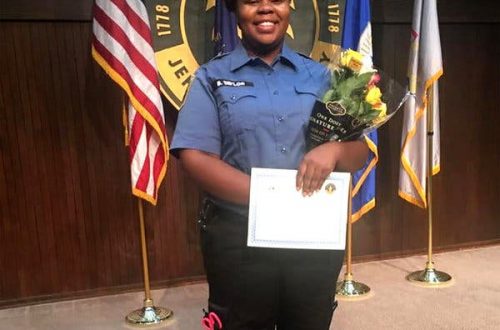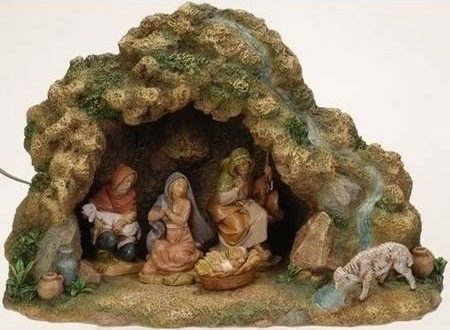What do you mean by Emergent?
When Dallas Seminary invited emergent author Brian McLaren to speak on campus I was impressed with what a gracious, witty speaker he was. His love for Christ was evident. He spoke of the need to reach a postmodern culture with the message of the gospel. And then he said, What if truth is not a foundation that we build upon (with reason and certainty), but a circle, and what matters is whether you are moving towards the circle or away from it. And what if the circle is moving?
That’s one “lane” of the emergent church.
How can we bring older and younger generations together in Christ? How can grandparents/ parents understand their grandkids/kids? What do younger people with more of a postmodern sensibility want and need? What does the emergent church value? This is the second blog in a series about bridging the modern/postmodern divide and Jim Belcher’s book Deep Church: A Third Way Beyond Emerging and Traditional. (By the way, just last week Christianity Today recognized Belcher’s book as one of the Best of 2009.)
When we say “the emergent church” we are talking about churches that put a high value on community, authenticity and mission. But are we talking about Brian McLaren? Rob Bell? Mark Driscoll? Chris Seay? Donald Miller? Emergent Village? Whether you recognize these names or not, one thing is helpful to know: While the emergent church wants to reach those with a postmodern sensibility, not all emergent churches are taking the same approach or even sharing the same gospel. Mark Driscoll has written a classic article that describes “navigating the four lanes” of the emergent church. It differs slightly from Jim Belcher’s description of three different groups in the emergent church , but the two approaches share much in common.
In Deep Church Belcher (drawing on church planter Ed Stetzer’s anaysis) divides the emergent church into relevants, reconstructionists and revisionists. Briefly, relevants want to keep the gospel and the basic form of church unchanged. Just make it more culturally relevant. Reconstructionists want to keep the gospel the same but radically alter the form of the church to serve its mission. Think house churches. Revisionists want to change the gospel and the form of the church.
For the clearest understanding of the differences I highly recommend Belcher’s book or Driscoll’s article. But if you want just a brief description of each read on:
Relevants: Are thologically conservative churches and leaders who want to change preaching techniques, worship, music, leadership structure and outreach to connect with postmoderns. They often start a more culturally relevant service within a larger church that is designed to reach the under 35 or 40 age group. They would be the ones driving in Driscoll’s “Emerging Evangelical” lane as well as his “Emerging Reformers” lane. In another “lane” (that Belcher would describe as “Relevant”) Driscoll and other “Emerging Reformers” hold to Reform theology and strong distinctions of gender roles in the home and the church. They are charismatic in their beliefs of the gifts and aggressive in planting churches. Like the “Emerging Evangelicals” they take a high view of Scripture. In addition to Driscoll, relevants would include Chris Seay, Donald Miller, Dan Kimball and John Burke.
Reconstructionists: Driscoll calls this lane the “House Church Evangelicals,” although they also gather in new monastic communities like Shane Claiborne’s. Deeply disaffected with traditional church, seeker church, purpose driven church, any kind of church in a church building with a pastor who preaches 30-40 minute monologues, they believe that the church is sent to be a “resident alien.” They believe that more informal, incarnational communities that teach and mentor each other produce more transformation than the traditional church. Who are they? George Barna (Revolution), Neil Cole, Michael Frost, Alan Hirsch, John Eldredge and Frank Viola.
Revisionists put such a high value on relationships that they don’t answer questions on doctrinal distinctions but are intentionally fuzzy. They wonder how people can follow Christ without being committed to lives of radical reconciliation. Driscoll is inclined to believe that Brian McLaren, Rob Bell, Tony Jones and Doug Padgitt (of Emergent Village) have driven so far down the lane of “Emergent Liberals” (note the difference between “Emergent” for the liberals and “Emerging” for the rest) that they are in danger of drifting off the highway of Orthodoxy. These leaders and churches are rethinking substitutionary atonement, the reality of hell, gender roles, the permissibility of homosexual practice, the authority of the Bible and the gospel itself. These are the names and ideas most people associate with “Emergent/Emerging” without realizing the vast differences in the four lanes.
Why is this important? I have read the most vitriolic accusations against the Emerging Church by Christians. Jesus calls us to Unity. It begins with understanding our common ground as well as our differences and pursuing a respectful dialogue. If we are called to “speak the truth in love” then the time when we are most focused on doctrinal clarity is the time we need to be most earnest in expressing our love.
If we want to bridge the divide between older and younger generations, it’s not just a matter of age difference. Postmoderns will not naturally “grow out of” postmodernism as they age. It is a difference in worldview. And the more we understand what postmoderns and the Emergent church wants, the more we will be able to build bridges of understanding to our children and parents, our neighbors and friends.



5 Comments
Sue Bohlin
You turned on the lightbulb!
Thanks so much, Lael, for this excellent analysis and description of what has been very fuzzy for me. There are important distinctions between the various "lanes" of folks, not to mention a distinction between emerging and emergent!
Laura Singleton
Great explanation!
Thanks for the clarity, Lael! As someone who appreciates much of the emerging and modern and ancient theologians, I think it’s hugely important to separate emerging vs. modern and orthodoxy vs. unorthodox. Just like some high churches are orthodox and some aren’t, some contemporary churches that are and some that aren’t, there are some emerging/post-moderns that are and some that aren’t. There will always be "false prophets" who mimic the church while gutting her of her purpose and power.
I don’t see biblical mandates for sanctuaries, 30-40 min sermons or pews. I do see mandates for truth, sticking to scripture, and preaching Jesus’ atonement as the only way to salvation. As long as we stick to what God says is important, I don’t think we need to fight about format. God has given us flexibility to to teach His message in ways that fit our culture, time, location, felt needs, musical preference, etc.
Lael Arrington
I too appreciate so much of what the emerging church wants
Thanks, Sue and Laura, for your kind words. Laura, I would agree that "sticking to what God says is important" is the main thing. I wish we could all agree on what that is and align ourselves with it.
Christian Overman
Very helpful
Thanks, Lael, for summarizing as you have. Very helpful!
(Is it OK for a man to read your blog?)
Lael Arrington
To all men reading this blog
You are absolutely welcome to read *and* comment!